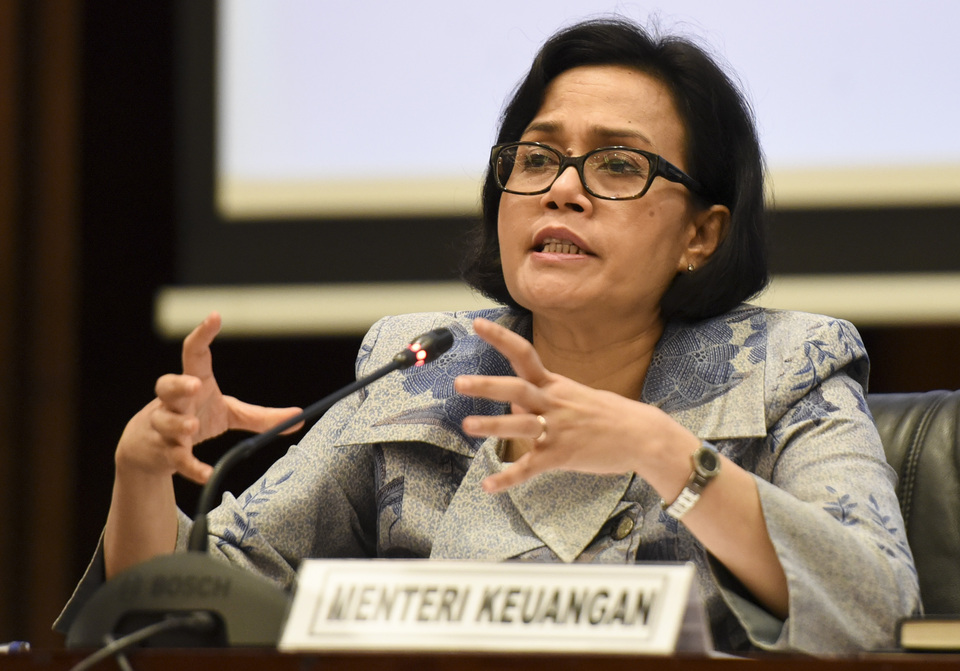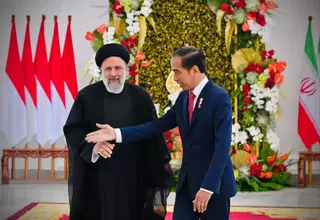Indonesia Call: The Urgency of Developing International Cooperation Road Map

Indonesia, as projected by McKinsey in 2012, would be the seventh largest economy on the earth by 2030. This outlook has been broadly discussed among scholars whether Indonesia’s performance in the context of economic growth, democracy, as well as in its evolving roles in international organizations and global society will lead the state to be a new emerging power.
Another institution that conveyed the identical tone concerning the rising of Indonesia in the near future is the Standard Chartered Bank in its special advisory, titled “The Super-Cycle Report.” Indonesian Finance Minister Sri Mulyani Indrawati has in some occasions, including when she had her first working meeting with parliament in August 2016, demonstrated her uppermost confidence that Indonesia will be a more prominent state in the next decades.
For the purpose of actualizing those forecasts and achieve collective objectives, Indonesian government must work extremely harder and expends its entire efforts exceedingly. According to Kliman and Fontaine (2012), Indonesia should decide to beyond concentrate on internal development and focus accomplishing domestic challenges as country’s top priority. Nonetheless, the writer believes that a serious means to getting closer to be world’s star performer is not only by maximizing its domestic potential, but also strengthening transnational relationships and establishing more beneficial cooperation with wider regions as well as bilateral partners.
The fast developing economy of Indonesia is admittedly inseparable from the global growth. Likewise, the surviving prominence of Indonesia as a middle income country has a significant contribution to the global economy. This mutual correlation affirms the necessity of worthwhile relationships among countries in multilateral, regional, as well as bilateral frameworks. Besides, it is undoubtedly mandated in the constitution, which the state must be actively play significant roles in international society, including in the global politics and economy.
The importance of vigorously participating in international affairs, specifically in economy and finance matters, are not only to embrace world wide’s best practices to improve the national policy making process. This significance is also to enlighten global society towards Indonesia’s domestic and economic policy and mitigate the occurrence of any dispute related with the particular policies.
More importantly, the involvement of Indonesia in sustaining international cooperation is to support discovering solutions for global problems and challenges. However, the respectable willingness of Indonesia to retain both multilateral and bilateral cooperation, supposed to be recognized as a supplementary instrument for the nation to embody the prosperous Indonesian civilization.
Therefore, the cooperation objectives should be in line with Indonesia’s aspirations. In the last government administration, Indonesia’s approach to its foreign policy and diplomacy was “thousands friends, zero enemy.” This diplomatic attitude is considered as having none of assertive positions towards specific agenda that consistent with national objectives. The ministries under President Joko "Jokowi" Widodo should also maintain international activities with their institutional partners, subsequently appeared less focus and not strategically in line to adopt some particular issues with national agenda.
Hence, the cooperation with both international institutions and country partners are arguably less effective to bolster the government administrations to tackle domestic challenges.
Meanwhile, the current presidency possesses a different consideration on foreign policy with its predecessor’s by promoting the Free and Active principle. This approach has led the government to prioritize results-driven foreign policy towards more bilateral relationships.
Moreover, the discontinuation of Trans Pacific Partnership (TPP) agreement after the United States' presidential election figured Donald Trump to become the successor of Obama’s administration, has caused the necessity for Indonesia to rearrange its foreign policy strategy which previously decided an intention to join TPP as the balancing strategy to China’s foreign policy hegemony, whereas China is currently undertaking domestic problematic situation generated by its slowdown economic growth.
Hence, the strategy for Indonesia to enforce its bilateral cooperation is worth to concern. Jakarta’s new platform is believed as the signature strategy to address domestic reforms by pursuing foreign policy that has direct capacity to benefit national agenda and Indonesia’s citizens. This approach is considerably measured as guidance for line ministries to endure their cooperation with bilateral partners.
However, the writer believes that the government needs clearer and more specific guidance concerning international cooperation among country partners, specifically in existing topics, so that the partnerships can attain optimum advantages for the nation. The particular areas, which have been recognized as sustainable collaboration between Indonesia and other nations, are the economy and finance issues. The involvement of Indonesia in various international forum which is discussing those specific topics, is not only at the presidential level, but also profounder deliberated in the ministerial stages.
The international affairs platform, which focus on economy and financial related matters, are for instance in the G20, APEC Finance Minister Process, as well as the Asean Finance Minister Meeting. Furthermore, Indonesia has preserved mutual relationship with bilateral partners including international financial organizations and numerous technical institutions.
Addressing the changing role of Indonesia in the context of global economy and national agenda as discussed earlier, as the writer contemplates that the definite cooperation on economy and finance must be structurally designed, especially for bilateral partnership. Respectable arrangement will definitely provide obvious direction to step further and attain the purposes of the cooperation, which reflects the objectives of the nation.
Unfortunately, the strategy of international cooperation, specifically on the economy and finance issues, has yet to exist.
The absence of comprehensive strategy on each specific area is considered as another challenge for Indonesian government to drive national agendas to the international forum, including bilateral cooperation. All this time, Indonesia has only been responding the issues whom conveyed by its partners with lack privilege to address its national agenda as the main intention of the cooperation.
Consequently, it is believed that Indonesia urgently needs to establish a roadmap that containing strategy and priority issues to be proposed on the framework of the partnership engagement. Furthermore, this guidance will construct more aggressive foreign policy approach that also can create the stronger position of Indonesia to address its own interests. Explicitly, the road map will help the government maintaining specific topic in the ministerial level of discussion and related agencies that support greater national programs.
Currently, it is indeed a perfect momentum for the government to establish a roadmap for international engagement, including bilateral cooperation. Therefore, if there is any of government institutions possess intention to generate a blue print in order to create more focus and targeted objectives in such international cooperation, we must appreciate and provide greatest support for them. Encouragement from academia, researchers and experts as well as mass media will contribute meaningfully to the process of the roadmap establishment. None of the approach is easy to exercise. Yet, it will be much more difficult if there is no guidance to step further in ay international engagements which is expected to assist in succeeding the prosperous Indonesian people.
Deasi Widya is an alumnus of the Graduate School of Humanities and Social Sciences at the University of Melbourne, who is currently serving as an analyst for international cooperation in Fiscal Policy Agency, Ministry of Finance. All views are her own.
Tags: Keywords:POPULAR READS
Apple Wants to Increase Investments in Vietnam
Vietnam has become more important to Apple as the company seeks to diversify its supply chains away from China.China’s Top Diplomat Wang Yi to Visit Indonesia for Cooperation Talks
Chinese top diplomat Wang Yi will chair a policy coordination meeting aimed at strengthening Indonesia-China cooperation.President Jokowi Urges Global Restraint as Tensions Rise in the Middle East
President Joko "Jokowi" Widodo emphasized the importance of diplomatic efforts to prevent the escalation of conflict in the Middle EastKPK Identifies Sidoarjo Regent as Suspect in Corruption Probe
KPK has identified Ahmad Muhdlor Ali as a suspect in a corruption case involving the Sidoarjo Regional Tax Service AgencyEconomic Concerns Overshadow Security Worries for Indonesians in Iran
Indonesian citizens currently in Iran are more concerned about rising inflation than the security situation in the country.Popular Tag
Most Popular






















